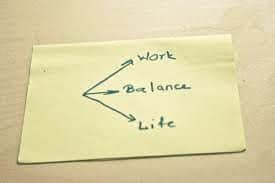COLUMN: Work life balance is crucial


But when it comes down to a work-life balance it’s easy to get things out of perspective.
In the charity sector I see it a lot and I am just as guilty.


Advertisement
Hide AdAdvertisement
Hide AdFor every incidence of a person emailing me way past office hours, I’m still at my computer or making calls, long after everyone else has gone home.
It doesn’t matter what your job role is or how many hours you’re supposed to work each week, we all do it.
The same goes for our trustees and tireless volunteers who give up their time to work with us on our projects.
I work at South Yorkshire’s Community Foundation (SYCF), a local grant-making charity and as chief executive I know first hand the constant battle it is to manage the workloads of our small team.


Advertisement
Hide AdAdvertisement
Hide AdIn a way it is a wonderful thing, our team are so dedicated to getting the grant funding we generate out to the community groups which will go on to do much good, that we give up our own time to make sure it happens.
We stay late, we check our emails when we get home and put off and sometimes even cancel holidays. Yet at the same time the more we do it, the more we risk burning out.
I know that a lot of it for the SYCF team at least is workload, but sometimes I think there is a culture among charity professionals that allows this, even approves of it.
Working for charities means that you are extremely aware of the cause and effect of what you achieve in your job role.
Advertisement
Hide AdAdvertisement
Hide AdWe are not only helping to fund and find other funding to grassroots groups to provide safe places for young to thrive and realise their aspirations, counselling for domestic violence victims or to run social and luncheon clubs for isolated older people, but we are also maintaining ourselves as a resource for these organisations that would simply not exist without funding support.
It is very easy to throw yourself into the work so completely.
So I say to all the charity professionals who are out there, take a step back and remember that if you don’t look after yourself then you can’t look after anyone else either.